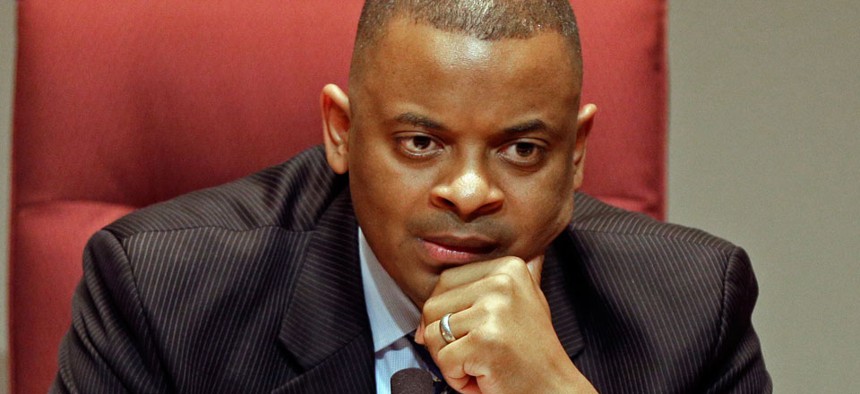
“We believe today’s decision honors both our commitment to safety and consumers' increasing desire to use their electronic devices during all phases of their flights,” Transportation Secretary Anthony Foxx said. Chuck Burton
Will FAA Help Restore Trust in Government?
Lifting of device ban could score some points with the public.
There may be opportunity in Thursday’s long-awaited decision by the Federal Aviation Administration to relax some rules against airline passenger use of electronic devices during takeoffs and landings.
“We believe today’s decision honors both our commitment to safety and consumers' increasing desire to use their electronic devices during all phases of their flights,” Transportation Secretary Anthony Foxx said. “These guidelines reflect input from passengers, pilots, manufacturers and flight attendants, and I look forward to seeing airlines implement these much anticipated guidelines in the near future.”
The decision appears thoroughly researched and cautious -- talking or texting on cellphones is still prohibited, by order of the Federal Communications Commission. The original ban on such devices as Kindles, Gameboys and iPads except when the plane is airborne has long been criticized as government foolishness by techies who believe they understand the technology’s risks to pilot-to-tower communications.
But Government Executive raised a larger question with three experts on government effectiveness as to whether the FAA’s sop to consumers might win back some of the trust in government that, polls show, has been lost in recent years.
“It's all about the flying public,” said Paul C. Light, professor of public service at New York University. “Most fliers thought the rule was stupid to begin with. The elimination of stupid does not mean smart.”
But the decision can also be viewed as an example of “government’s effort to be nimble and responsive to technology and changing times," said Lara Shane, vice president for research and communications at the nonprofit Partnership for Public Service.
“Anytime government can do something that has a benefit to the citizen it will pay dividends in terms of goodwill,” she said. “We have one of the safest air travel systems in the world, and that is because of FAA. Hopefully, American passengers are both grateful for the safety record and for how hard FAA employees work to keep us safe. “
The development cuts both ways, said Donald Kettl, dean of the School of Public Policy at the University of Maryland. “The FAA tends to be on the happier side of the federal government’s street -- it runs air-traffic control and cracks down on airlines that keep passengers stuck on runways. So it’s one more chance to put some positive points on the board.”
On the other hand, Kettl added, “Many airlines are now advertising that they are taking quick steps to make their fliers happier, and new WiFi systems are being rolled out. So it’s a good bet that much of the positive glow will go to the airlines instead of the FAA.”
The challenge is that there is “more traction in cracking down on bad things than on preventing bad things from happening,” he said. “The FAA is likely to score more points by preventing passengers from getting stuck for hours on the tarmac than allowing fliers to do what many of them thought they should have been able to do ages ago."
NEXT STORY: HHS Official Shows Grace Under Overload







